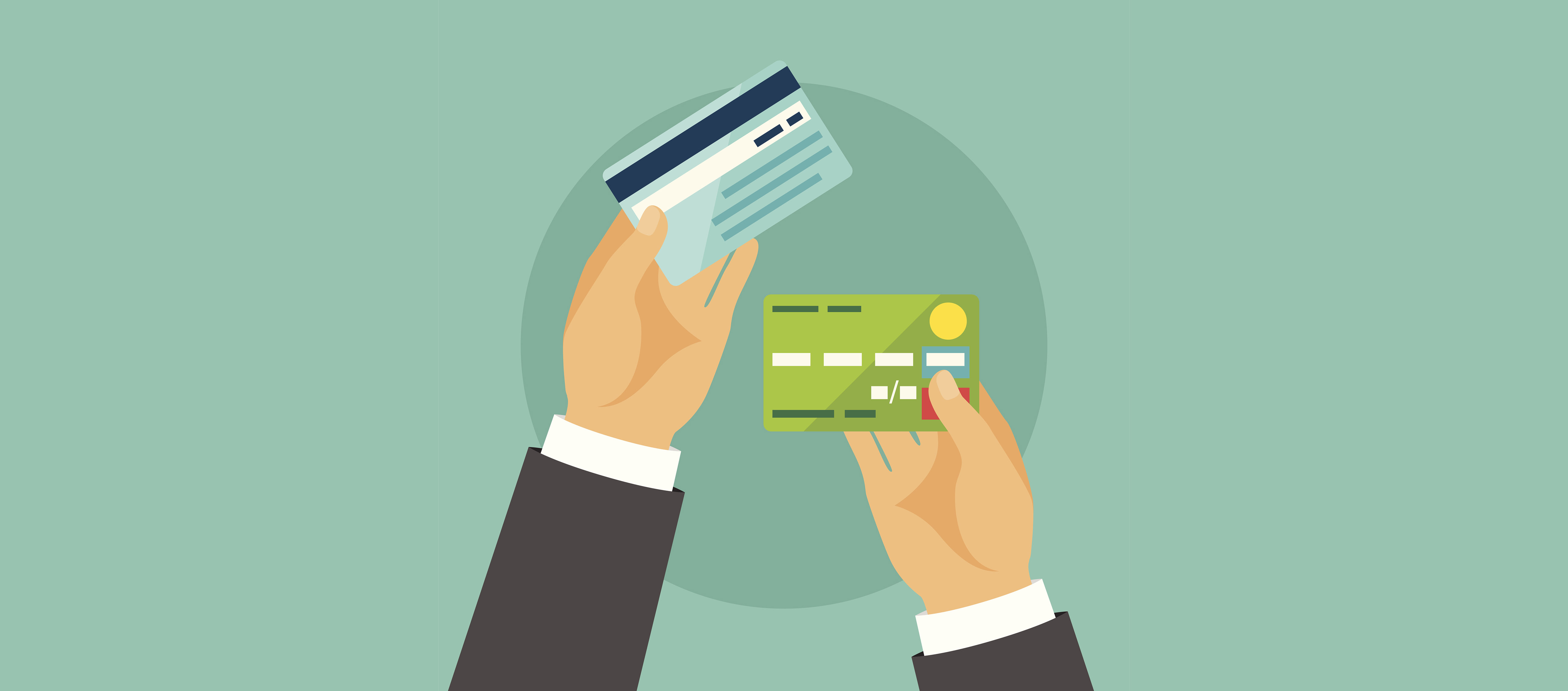How to choose the best credit card for you
There are a ton of options out there. Here's how to sort the good offers from the bad.


A free daily email with the biggest news stories of the day – and the best features from TheWeek.com
You are now subscribed
Your newsletter sign-up was successful
Guaranteed cash back on every purchase! Bonus miles towards your next flight! Zero percent APR for one year! Rewards just for filling up your gas tank!
With credit card companies now offering a multitude of perks and rewards just for signing on the dotted line, consumers face a difficult task of choosing the best card to meet their financial goals. "Today's credit cards offer such a dizzying variety of features and bonuses, that it's no longer a matter of choosing the best card, but of selecting the one with the offers that matter to you," says Janet Alvarez, a credit card expert with the site Wise Bread.
Fortunately, there are some very specific steps you can take that will help narrow your search and match you up with the card that's right for you.
The Week
Escape your echo chamber. Get the facts behind the news, plus analysis from multiple perspectives.

Sign up for The Week's Free Newsletters
From our morning news briefing to a weekly Good News Newsletter, get the best of The Week delivered directly to your inbox.
From our morning news briefing to a weekly Good News Newsletter, get the best of The Week delivered directly to your inbox.
1. Check your credit score
Before you get too excited about earning cash back or miles towards your next flight, make sure to check your credit score. Your score is what's used to determine eligibility for a particular card. Generally speaking, consumers with poor credit can expect to pay an annual fee and a much higher interest rate than someone with a healthy credit score, but, if your score is healthy — say, above 700 — you will have your pick at the best cards available.
2 . Assess your spending
Most experts agree that the first thing you should do before locking in a particular card is to look at how much you spend each month and what category these expenses fall under. Based on your spending patterns, choose a card that maximizes cash back and other rewards in your top categories.
A free daily email with the biggest news stories of the day – and the best features from TheWeek.com
3. Know your habits
Mike Sullivan of Take Charge America, a national nonprofit credit counseling and debt management agency, says to consider the following tips when looking for a credit card:
- If you carry a balance from month to month, the APR or interest rate is critical. Start with a low APR as your first criterion.
- If you charge a lot on a card but pay it off monthly, you should focus on the rewards or cash back.
- If you're planning on a balance transfer to the new card, you need to focus on the APR, the length of any special APR terms, and the balance transfer fee.
- If you're going to use the card for extensive travel and entertainment or for business purchases, then you need to get a card with a large credit limit.
4. Consider the rewards
If you pay off your credit cards in full, every month, Adam Jusko, the CEO at CreditCardCatalog.com, says you absolutely should be thinking about rewards cards that offer points, miles, or cash back on every dollar you spend. Since these cards typically come with an annual fee, as well as a higher APR, it's best to choose credit cards that have perks you will actually use.
Jeff White, Financial Analyst at FitSmallBusiness.com, recommends using multiple cards since no single credit card will provide you with everything you need. He gives the following examples of what to look for when shopping for a card:
- For travelers: If you want a card to maximize the value of your traveling, then you should look for cards that focus on single aspects of your travel plans. Get one card that has great rewards for airfare (even niching down to your favorite airline is best). Then get another card that focuses on hotel stays at a hotel brand that's likely to be available everywhere you go. The more you can niche down on cards, the higher your rewards typically are.
- For gas: Look for the best rewards card for the gas station closest to where you fill up all the time. You can also look for good card deals that give you a large percent of cash back on your gas cards.
- For balance transfer: If you have outstanding credit card debt that you've been unable to pay off, chances are, you're paying a high interest on it. Consider moving the balance to another card that has a 0 percent introductory offer for at least a year, and then make a plan to pay off your balance within that time.
- For students: If you're a student, you probably need to establish credit. This is a perfect time to find a low-risk credit card that will have a small credit line that will help you build credit without tempting you to spend too much money.
5. Know the interest rates and annual fees
Make sure to read the fine print on every application. Often times, consumers get caught up in the perks and rewards and forget to check if there is an added cost or a higher interest rate associated with a particular card. If possible, look for a card with no annual fee (at least for the first year), so you can test drive the card without any cost to you.
The general rule of thumb on annual fees, explains Jusko, is to stay away from a rewards card with an annual fee unless you spend at least $10,000 per year with your card, because the increased reward will rarely make up for the fee you pay. And if you carry any sort of credit card debt — which 38.1 percent of Americans do — Alvarez says you should avoid taking on new cards with a long-term interest rate higher than cards you currently use, no matter the perks or rewards.
Sara Lindberg is a freelance writer specializing in health, wellness, education, and business. Her work has been featured in The Washington Post, Headspace, LIVESTRONG, Paste Magazine, GOOD, and many more.
-
 How the FCC’s ‘equal time’ rule works
How the FCC’s ‘equal time’ rule worksIn the Spotlight The law is at the heart of the Colbert-CBS conflict
-
 What is the endgame in the DHS shutdown?
What is the endgame in the DHS shutdown?Today’s Big Question Democrats want to rein in ICE’s immigration crackdown
-
 ‘Poor time management isn’t just an inconvenience’
‘Poor time management isn’t just an inconvenience’Instant Opinion Opinion, comment and editorials of the day
